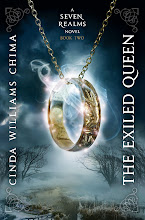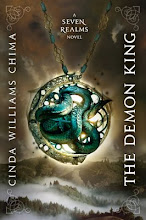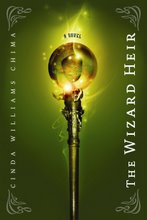@Your Library (the campaign for libraries) has posted my op-ed piece on the value of libraries here.
The awesome Cindy Pon has interviewed me over at The Enchanted Inkpot here.
The awesome Cindy Pon has interviewed me over at The Enchanted Inkpot here.
Today I’m also guest posting over at GreenBeanTeenQueen on the topic of Magic. Here's a taste!
Magic 101
Magic is the element that distinguishes fantasy from other types of fiction. But what is magic? And how much of it do you need to call your work a fantasy? What are the keys to developing a coherent magical system of your own?
First and foremost, remember that there are more similarities than differences between fantasy fiction and other genres. Successful fantasy fiction has to nail the other elements common to fiction—character, setting, and plot. It doesn’t matter how spectacular your magical fireworks—they won’t save a lame story starring one-dimensional characters. Well-written fantasy should be accessible even to those who don’t generally seek it out.
Magic is a term used for the supernatural—events and beings outside of natural law as we understand it. As far as we know, people cannot turn invisible (though I understand they’re working on that.) As far as we know, people cannot fly without benefit of airplanes, helicopters, and the like. As far as we know, people cannot predict the future.
A well-conceived magical system will enhance your story and provide endless options for complicating your characters’ lives. A poorly-conceived system will give you fits through the entire story arc and cause readers to lose confidence. So it makes sense to take some time and do it right up front.
Questions to Consider in Magical Worldbuilding
First and foremost, remember that there are more similarities than differences between fantasy fiction and other genres. Successful fantasy fiction has to nail the other elements common to fiction—character, setting, and plot. It doesn’t matter how spectacular your magical fireworks—they won’t save a lame story starring one-dimensional characters. Well-written fantasy should be accessible even to those who don’t generally seek it out.
Magic is a term used for the supernatural—events and beings outside of natural law as we understand it. As far as we know, people cannot turn invisible (though I understand they’re working on that.) As far as we know, people cannot fly without benefit of airplanes, helicopters, and the like. As far as we know, people cannot predict the future.
A well-conceived magical system will enhance your story and provide endless options for complicating your characters’ lives. A poorly-conceived system will give you fits through the entire story arc and cause readers to lose confidence. So it makes sense to take some time and do it right up front.
Questions to Consider in Magical Worldbuilding
Read the rest here!













1 comment:
I loved your interview and the post on Magic 101 was fantastic. I'm going to bookmark it and use it when I create my only fantasy worlds. Thanks.
I met you at the SCBWI conference in Michigan last Fall. I'm now blogging at Literary Rambles on Mondays. Here's the link: http://caseylmccormick.blogspot.com/
I hope you'll consider having me a part of your next blog tour.
Post a Comment